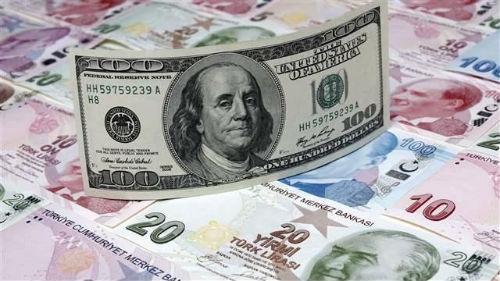The dollar firmed against the yen in Asia on Tuesday as investors await clues about future US and Japanese monetary policy, while the Thai baht slipped after the army declared martial law in the crisis-hit nation.

In Tokyo afternoon trading, the greenback fetched 101.55 yen, up from 101.45 yen in New York Monday afternoon. The euro rose to $1.3711 from $1.3709 and 139.20 yen from 139.13 yen in US trade. Investors are focusing on the Bank of Japan´s two-day board meeting, which wraps up Wednesday. While it is expected to end with no movement on monetary policy, traders will be closely following remarks by its head Haruhiko Kuroda. The central bank chief has previously said the BoJ would not hesitate to loosen policy if necessary.
However, if Kuroda emphasises an upbeat view on the world´s third-largest economy, “the market will likely interpret (that) as a signal he will allow a stronger yen and weaker stock market,” said Osamu Takashima, chief FX strategist at Citigroup Global Markets Japan. Holding off further easing would tend to boost the yen, which in turn tends to weigh on shares of Japanese exporters as it hurts their profitability. That could see the dollar and Nikkei stock index fall below 101 yen and the 14,000 level, respectively, he said. The benchmark index ended Tuesday morning´s session at 14,126.34.
Investors were also waiting for Wednesday´s release of US Federal Reserve meeting minutes. The minutes cover a two-day Fed meeting that concluded on April 30 at which the Fed trimmed its stimulus programme by another $10 billion to $45 billion a month. But the bank repeated its view that benchmark interest rates would remain low for some time. In other trading, the dollar gained against the Thai baht after the army on Tuesday declared martial law across the country to restore order following months of anti-government protests. -thenews











